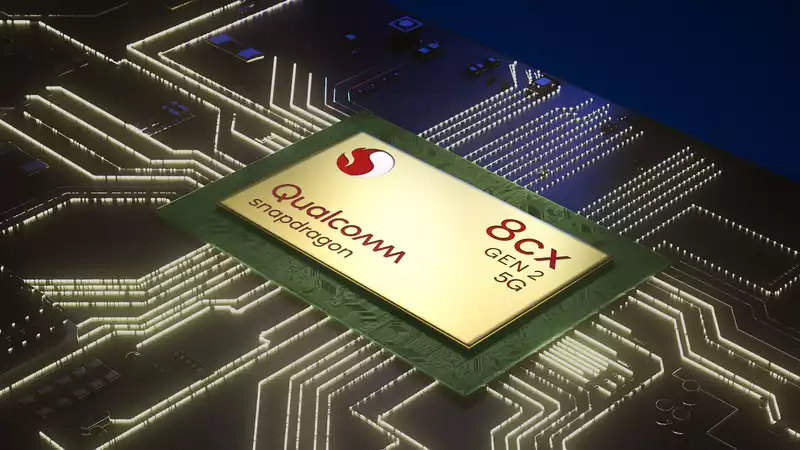It has been a busy few months for laptop chips, with Apple announcing a machine with its own M1 processor and Microsoft reportedly considering manufacturing its own chips. But long before other companies started dabbling in processors, Qualcomm was bringing its chip manufacturing technology to notebooks with an eye toward producing the components that drive always-connected notebooks.
Now rumors are circulating that Qualcomm is developing the next version of its Snapdragon 8cx chipset for laptops. And this generation could feature two unique variations of this chip aimed at increasing processing power.
This is according to WinFuture, which says that these yet-to-be-announced Snapdragon 8cx chips will rely on ARM-based technology and offer varying levels of performance without the energy-saving core. The idea of this update would be to remove certain power limitations in a bid for raw all-out power.
According to WinFuture, the punchier of the two chipsets will feature four so-called Gold+ series cores that reach 2.7 GHz in addition to four high-end cores at 2.43 GHz. Qualcomm is likely to put this technology in more high-end laptops and ultrabooks in terms of such premium performance.
The chipset is also said to have an additional version that includes a 32 GB RAM configuration and supports displays up to 14 inches. There is little additional information on other specs related to a possible processor upgrade. Most interesting, however, is the news that Qualcomm will remove the low-power core from the 8cx successor. Qualcomm has yet to comment on this situation, and there has been no official announcement on the matter. [The Snapdragon 8cx Gen 2 debuted last fall and is found in a variety of laptops, including the HP Elite Folio and Acer Spin 7. The previous version of the 8cx was found in the Lenovo Flex 5G, the world's first 5G-connected laptop.
If WinFuture's report comes to fruition, the next iteration of Qualcomm's 8cx chipset could be really powerful. At the time of this report, it is not known when these chips will appear or on which machines they will be installed.










Comments